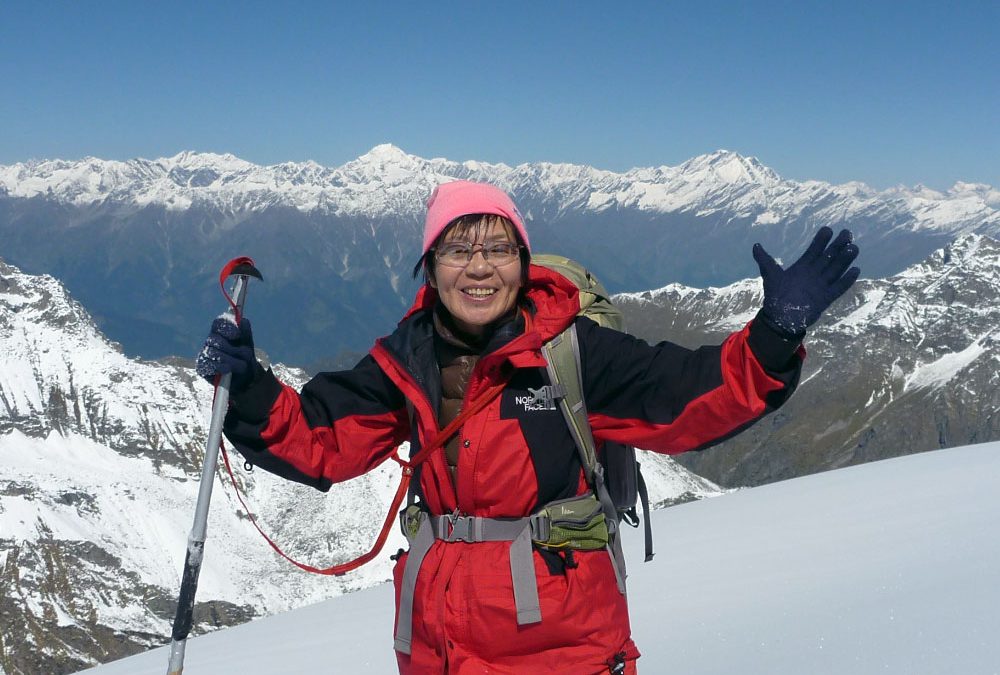
Although Junko Tabei humbly preferred being remembered as the 36th person to climb Mount Everest, she couldn’t downplay being the first woman to achieve the feat and the first to conquer the Seven Summits. Her achievements can be seen as even more remarkable considering she was facing mid-20th century cultural expectations for women, especially in her home country of Japan.
Born in 1939 to a family of seven children, she fell in love with the mountains during a school climbing trip at age 10. As her family could not afford such an expensive hobby, she only managed a few climbs during her youth. In college, she studied English and American literature at Showa Women’s University with the aim of becoming a teacher. However, the call of the mountains was too strong. It led her to pursue climbing in earnest with mountain climbing clubs where most of the time she was the only woman.
“Back in 1970s Japan, it was still widely considered that men were the ones to work outside and women would stay at home,” she once explained.
In 1969, fed up with how she was treated by male climbers, she founded Japan’s first of its kind Ladies Climbing Club with the mantra “Let’s go on an overseas expedition by ourselves.”And in 1975, she did the unthinkable by summitting Mount Everest, the world’s highest peak.
Her love of climbing propelled her to continuously defy the odds and become the first woman to ascend the Seven Summits, the tallest peaks on each continent: Kilimanjaro in Africa, Denali in North America, Aconcagua in South America, Carstensz Pyramid in New Guinea, Elbrus in Europe, Vinson in Antarctica, and Everest in Asia.
“Technique and ability alone do not get you to the top; it is the willpower that is the most important. This willpower you cannot buy with money or be given by others... it rises from your heart,” she said.
In the early 2000’s, she earned a post-graduate degree in environmental science, studying the negative impact of human waste on Mount Everest. She also served as director of the Himalayan Adventure Trust of Japan, a group dedicated to protecting fragile high-alpine environments from heavy climber traffic.
When she passed away at age 77, after having been diagnosed with stomach cancer, she had paved the way for many others and left behind a lasting legacy of human achievement, determination, and environmental activism.
